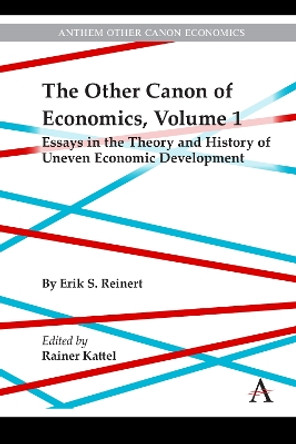Description
About the Author
Robert Huggins is Chair of Economic Geography and Director of Research at the School of Geography and Planning, Cardiff University, as well as the Director of Cardiff University's Cities Research Centre. His research interests and expertise concern urban and regional economic development, in particular the study of behaviour, culture, competitiveness, knowledge flows, entrepreneurship, innovation, clusters, and inter-organizational networks. He has published more than eighty articles in peer-reviewed journals and authored or edited five books. Piers Thompson is Professor of Economics at Nottingham Business School and Deputy Unit of Assessment Coordinator at Nottingham Business School, Nottingham Trent University. His research interests include behavioural economics, choice and welfare, and economic competitiveness, with a focus on spatial economics and understanding geographic differences in development, culture, entrepreneurship, network behaviour, and economic growth. He is a review board member of the International Journal of Entrepreneurial Behaviour and Research and has published over forty peer-reviewed journal articles.
Reviews
A Behavioural Theory of Economic Development can and should become a guide for researchers who want to give culture and agency the place they deserve in the study of urban and regional development. The volume extends our knowledge of individual and group behaviour with respect to regional development. And it stimulates one to look for the right methods, both quantitative and qualitative, to capture the cultural dimension of it in the best way * Regional Studies *
the book offers a good start for exploring these questions and for focusing empirical research on the interplay of agency, behavior, evolution, culture, and institutions that is so important for understanding the variegated outcomes of local and regional economic development. In particular, students and early-career researchers interested in these highly topical questions are likely to find ample inspiration for further research in this book. * Eurasian Geography and Economics *
This scholarly study lays out a theoretical argument around the process of economic development; it then provides empirical evidence to illustrate cultural, psychological, and institutional relationships that uncover how that process evolved. By identifying that differences in human conduct across locations and regions matter (both within and between political boundaries), the authors add nuance and understanding to a salient research area. This work is also an important reminder to researchers and policy makers that people do indeed matter. * T. E. Sullivan, CHOICE *
Economic development is more than the outcome of the location choices and strategies of large corporations, governments, and institutions. It is shaped and structured by the myriad decisions we all make. Fusing long standing theories of economics, innovation theory, and economic geography with more recent advances in behavioral economics, network sociology, social psychology, and psychogeography, this book offers an eye-opening new window into the processes of economic development. * Richard Florida, University of Toronto, Author of The Rise of the Creative Class *
An ambitious contribution to the theory of economic development, bridging recent advances in the theory and practice of decision-making with a commitment to understanding how and why cities and regions develop (or not). The authors challenge convention whether found in economics, economic geography, or in area studies. The result is a breath of fresh air in a field of research and public policy too often enamoured with path dependence and uneven development. They have something to say, and say it with rigor and insight. * Gordon L. Clark, University of Oxford *
This important new book uncovers the "secret sauce" underlying why some cities and regions do better than others-it's all about the people. Huggins and Thompson weave together thoughtful new theoretical insights with meticulously garnered empirical evidence to make it clear it's not just human capital but rather people's behavior that drives economic performance and ultimately the development of places. Thanks to this path breaking book, with its focus on the key role played by behavior, economic development policy for cities, regions, and states will never be the same. * David B. Audretsch, Distinguished Professor, Indiana University *
Book Information
ISBN 9780198832348
Author Robert Huggins
Format Hardback
Page Count 324
Imprint Oxford University Press
Publisher Oxford University Press
Weight(grams) 700g
Dimensions(mm) 21mm * 164mm * 242mm







